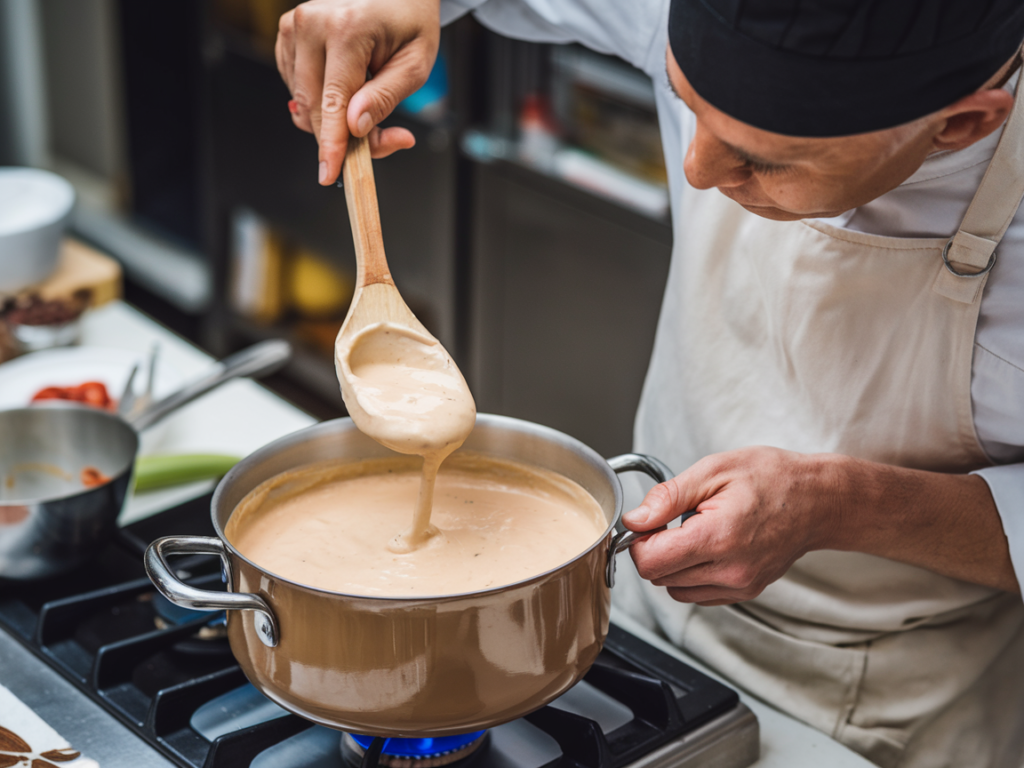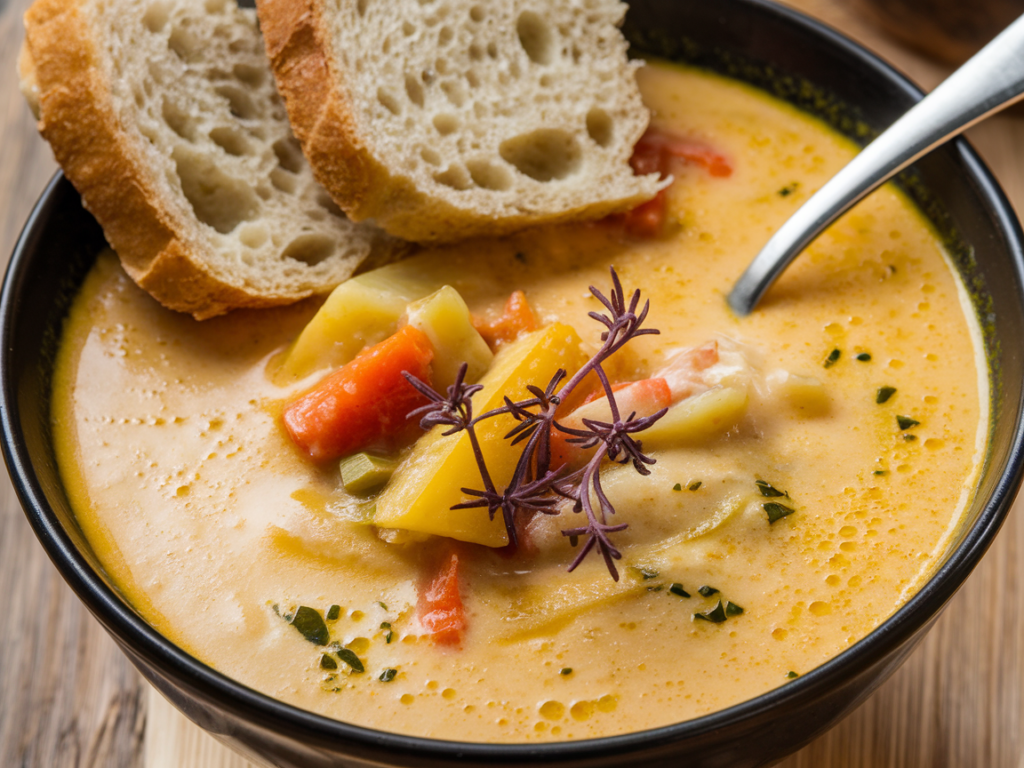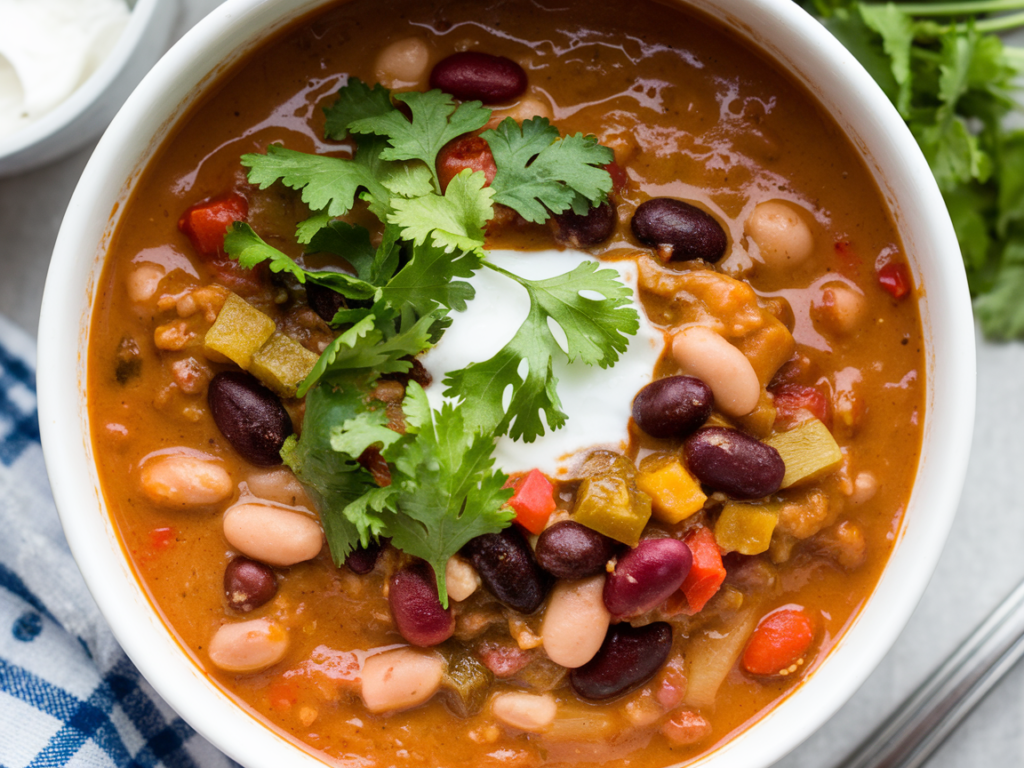Coconut milk is well-loved in cooking for its ability to make dishes rich and creamy. Whether you’re looking for a dairy-free alternative or just want to add more texture to your meals, coconut milk is a versatile ingredient. But how exactly does it make things creamy? Let’s dive into why coconut milk is a favorite for creating smooth and delicious dishes.
What is Coconut Milk?
Coconut milk is made by mixing grated coconut meat with water. It’s available in various forms like full-fat, light, and coconut cream. Full-fat coconut milk is the creamiest, while light coconut milk contains less fat. Each version adds a different level of creaminess, depending on your recipe.
When choosing between coconut milk and coconut cream, it’s important to know which one suits your dish. For a creamy, rich texture, full-fat coconut milk works best in dishes like coconut curry chicken. For lighter meals, light coconut milk is a better option. For more insights on choosing the right ingredients for your meals, check out this delicious Pumpkin Banana Loaf recipe.
How Coconut Milk Adds Creaminess
Coconut milk contains natural fats that help create a smooth, velvety texture. When heated or blended, these fats emulsify, adding creaminess to dishes. This is why it’s commonly used in curries, soups, and sauces. It doesn’t just add flavor—it makes the entire dish feel more indulgent and satisfying.
If you’re curious about experimenting with coconut milk, you might also enjoy making recipes like these Muddy Buddies, which combine texture and flavor.
Coconut Milk in Desserts: A Dairy-Free Option
Coconut milk is a popular alternative to heavy cream in desserts, especially for those who follow a dairy-free or vegan diet. Its richness makes it perfect for creating creamy treats like vegan ice cream, chocolate mousse, and coconut cream pie. Full-fat coconut milk is especially preferred for dessert recipes because it mimics the texture of dairy-based creams.
For more inspiration on baking with coconut milk, check out how to make rich and creamy Chocolate Chip Cookies.
Coconut Milk vs. Coconut Cream: Which is Creamier?
Both coconut milk and coconut cream add creaminess to dishes, but they differ in texture. Coconut cream has more fat, making it thicker and richer, which is perfect for desserts and sauces. Coconut milk, on the other hand, is thinner and better suited for soups, curries, and smoothies.
- Coconut Milk: Ideal for light dishes like soups and curries.
- Coconut Cream: Best for richer, creamier dishes like sauces and desserts.
How Coconut Milk Works in Cooking
Coconut milk is a great addition to recipes because of its ability to blend smoothly with other ingredients. This makes it ideal for creating creamy textures in soups, sauces, and beverages. When simmered, coconut milk thickens, giving dishes a rich, velvety feel.
For example, in recipes like alfredo sauce, coconut milk can easily replace cream, providing a light but creamy texture. Check out these tips on how to improve the texture of your sauce in this post on What Makes Alfredo Sauce Taste Better.
Health Benefits of Coconut Milk
In addition to adding creaminess, coconut milk offers a variety of health benefits. It’s rich in medium-chain triglycerides (MCTs), which are fats that can boost energy and support metabolism. It also contains essential nutrients like magnesium and potassium, making it a nutritious option for vegan, keto, or dairy-free diets.
People love using coconut milk for its healthy fats, which provide long-lasting energy and add a satisfying texture to meals.
Common Misconceptions
Many people think coconut milk is too watery to be creamy. This can be true for light coconut milk, but full-fat coconut milk has enough fat content to create a smooth and rich texture. The key is choosing the right type of coconut milk based on your recipe.
Popular Recipes Using Coconut Milk
Here are some favorite dishes that rely on coconut milk for their creamy texture:
- Coconut curry chicken: Coconut milk balances spices and adds creaminess.
- Butternut squash soup: Rich and comforting, perfect for cold days.
- Coconut milk ice cream: A smooth, dairy-free alternative to traditional ice cream.
- Vegan chocolate mousse: Silky and indulgent, thanks to coconut milk.
- Pina colada smoothie: A creamy, tropical drink made with coconut milk.
Each of these recipes shows how versatile and effective coconut milk is at making dishes creamy.
FAQs
Is coconut milk a good substitute for cream?
Yes, coconut milk is an excellent dairy-free substitute for heavy cream in both sweet and savory dishes.
Does coconut milk thicken when cooked?
Yes, coconut milk thickens when simmered, making it great for creamy sauces and soups.
What’s the difference between coconut cream and coconut milk?
Coconut cream is thicker and has more fat, making it ideal for rich desserts, while coconut milk is lighter and better for soups and curries.
Is coconut milk healthier than dairy cream?
Coconut milk offers healthy fats and nutrients, making it a good alternative to dairy cream for those on vegan or dairy-free diets.
Conclusion
Coconut milk is a fantastic ingredient for adding richness and creaminess to a variety of dishes. Whether you’re making savory curries, soups, or indulgent desserts, coconut milk provides the texture and flavor you need without the use of dairy. Its versatility and health benefits make it a popular choice for anyone following a keto, vegan, or dairy-free diet.
If you’re looking for more ways to use coconut milk in your cooking, don’t miss this easy recipe for Pancake Muffins, another dish that benefits from rich, creamy textures!




